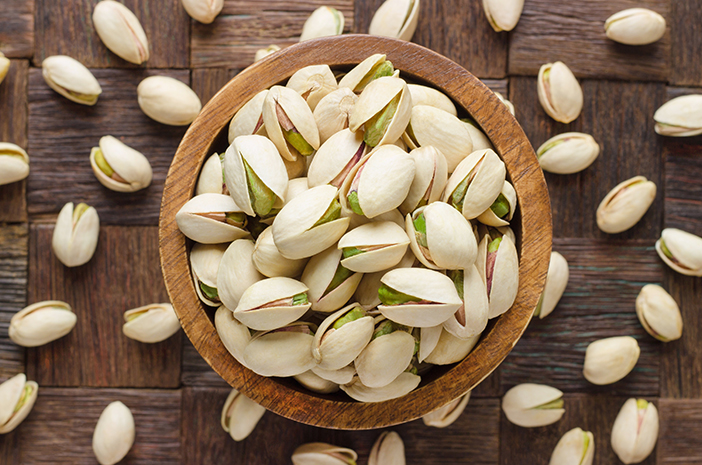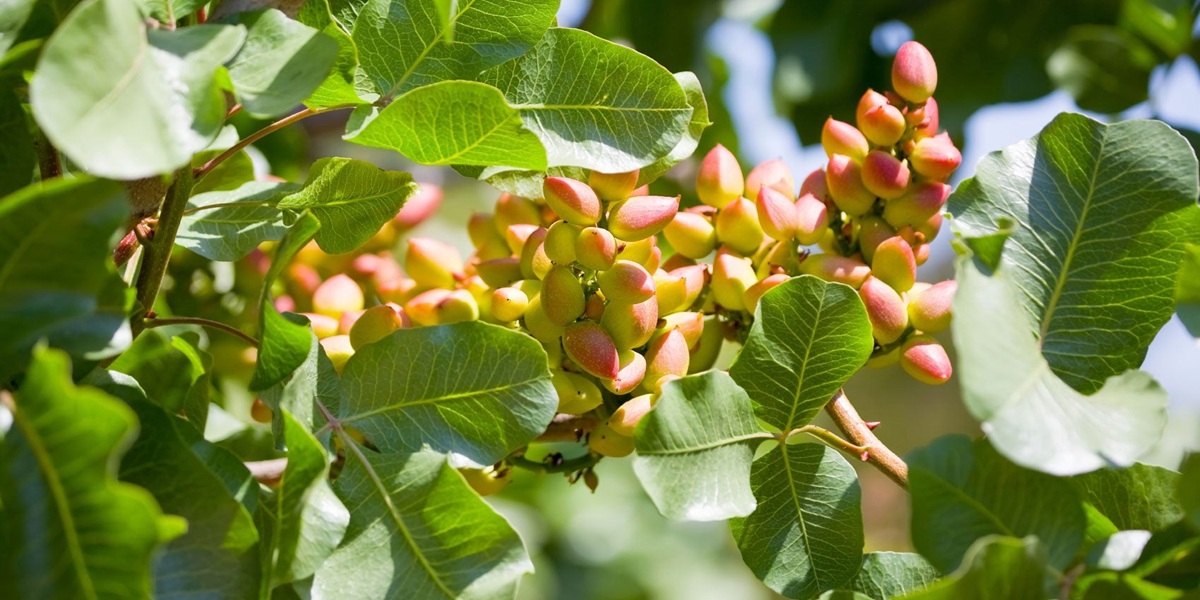Pistachios are more than just a delicious snack—they are a powerhouse of nutrition, flavor, and versatility. Known as one of the oldest nuts consumed by humans, pistachios have been prized for centuries for their rich taste, vibrant color, and impressive health benefits. Whether eaten raw, roasted, or blended into gourmet dishes, pistachios offer a unique combination of protein, healthy fats, and essential nutrients that make them a must-have in any diet. But did you know that not all pistachios are the same? Different varieties offer distinct flavors, textures, and health benefits.
Understanding the different types of pistachios and their nutritional advantages can help you make the best choices for your diet and lifestyle. From their antioxidant properties to their role in heart health, pistachios are more than just a tasty treat—they are a superfood backed by science. Stay with us as we dive into the fascinating world of pistachios, uncovering their types, benefits, and best ways to enjoy them.
The Different Types of Pistachios: What Makes Each Variety Unique?
Pistachios come in multiple varieties, each with distinct flavors, textures, and characteristics. The region where they are grown plays a significant role in determining their taste and quality. Some of the most well-known pistachio varieties include:
• Iranian Pistachios: The World’s Favorite Nut: Considered the gold standard, Iranian pistachios have a rich, buttery taste with a naturally high oil content that enhances their flavor. They come in several sub-varieties, including Fandoghi (round), Akbari (long), and Ahmad Aghaei (semi-long).
• American Pistachios (Kerman Variety): Primarily grown in California, these pistachios are slightly larger and have a milder taste compared to their Iranian counterparts. They are popular due to their consistent quality and bright green kernel.
• Turkish Pistachios (Antep Pistachios): These are smaller but have a more intense, slightly sweet flavor. Turkish pistachios are often used in premium desserts like baklava and ice cream due to their rich taste.
• Syrian and Mediterranean Pistachios: Known for their firm texture and bold flavor, these pistachios are a favorite in Middle Eastern cuisine.
• Chinese Pistachios: While not a primary producer, China is a major consumer of pistachios. Some of the pistachios labeled as Chinese are actually reprocessed nuts imported from Iran or the USA.
Each type of pistachio has its own unique taste profile, making them versatile for various culinary uses. Understanding these varieties helps in selecting the best pistachios for your needs, whether for snacking, cooking, or baking.
The Health Benefits of Pistachios: Why They Are a Superfood
Pistachios are packed with essential nutrients that support overall health. They are particularly rich in protein, healthy fats, fiber, vitamins, and antioxidants, making them an excellent choice for daily consumption.
• Heart Health: Pistachios contain high levels of monounsaturated and polyunsaturated fats, which help reduce bad cholesterol (LDL) while increasing good cholesterol (HDL). Studies show that regular consumption of pistachios can significantly lower the risk of heart disease.
• Weight Management: Unlike many other nuts, pistachios are relatively low in calories while being high in fiber and protein. This combination helps promote satiety, reducing overall calorie intake.
• Blood Sugar Control: Pistachios have a low glycemic index, meaning they do not cause rapid spikes in blood sugar. They also contain magnesium and antioxidants, which contribute to better insulin sensitivity.
• Eye Health: Rich in lutein and zeaxanthin, pistachios protect against age-related macular degeneration (AMD), keeping your vision sharp as you age.
• Gut Health: The fiber in pistachios acts as a prebiotic, supporting the growth of beneficial gut bacteria and improving digestion.
With their incredible nutritional profile, pistachios offer a wide range of health benefits that make them a valuable addition to any diet.
The Antioxidant Power of Pistachios: How They Fight Free Radicals
Pistachios are one of the most antioxidant-rich nuts available. These antioxidants play a crucial role in neutralizing free radicals, reducing oxidative stress, and preventing chronic diseases.
• Polyphenols and Tocopherols: These compounds help combat inflammation and protect cells from damage, reducing the risk of conditions like cancer and cardiovascular disease.
• Resveratrol: Found in pistachios, resveratrol is known for its anti-aging and neuroprotective properties.
• Vitamin E: This fat-soluble vitamin strengthens the immune system and enhances skin health by reducing the impact of oxidative stress.
• Carotenoids: The bright green color of pistachios is due to their high lutein and zeaxanthin content, which support eye health and reduce the risk of cataracts.
Including pistachios in your diet provides a powerful dose of antioxidants that can protect your cells, boost your immune system, and slow down aging.
Pistachios and Brain Health: How They Improve Cognitive Function
Research suggests that pistachios may enhance brain function by supporting memory, learning, and cognitive abilities.
• Rich in Vitamin B6: This vitamin is crucial for neurotransmitter function, which supports mood regulation and cognitive performance.
• Boosting Oxygen Flow: The high levels of iron and other essential minerals in pistachios improve oxygen delivery to the brain, enhancing focus and reducing mental fatigue.
• Protecting Against Neurodegenerative Diseases: The antioxidants in pistachios help reduce inflammation in the brain, lowering the risk of conditions like Alzheimer’s and Parkinson’s disease.
By including pistachios in your diet, you can support long-term brain health and improve daily cognitive performance.
How to Incorporate Pistachios Into Your Diet for Maximum Benefits
Adding pistachios to your meals can be both delicious and nutritious. Here are some simple and effective ways to enjoy them:
• As a Snack: Eat them raw or roasted for a quick energy boost.
• In Smoothies: Blend pistachios with fruits and yogurt for a creamy, nutrient-dense drink.
• In Salads: Sprinkle crushed pistachios over salads to add texture and a nutty flavor.
• In Baking: Use pistachios in cakes, cookies, and bread for a rich taste and nutritional boost.
• With Yogurt or Oatmeal: Add chopped pistachios to your breakfast for an extra dose of healthy fats and protein.
• In Savory Dishes: Use ground pistachios as a crust for fish or chicken for a gourmet twist.
By incorporating pistachios into your diet in various ways, you can maximize their health benefits while enjoying their unique flavor. (Pistachio Health Benefits: Why You Should Eat Them Daily)

Pistachios for Athletes: How They Support Muscle Recovery and Energy Levels
Pistachios are an excellent addition to an athlete’s diet, providing a unique combination of protein, healthy fats, and essential nutrients that support muscle recovery and energy levels.
One of the key benefits of pistachios for athletes is their high protein content. A single serving of pistachios (about 28 grams) contains around 6 grams of protein, making them a great post-workout snack. Protein plays a crucial role in muscle repair and growth, helping athletes recover faster after intense training sessions.
Pistachios are also rich in electrolytes such as potassium and magnesium, which help regulate muscle function, prevent cramps, and improve hydration. Potassium, in particular, plays a vital role in maintaining fluid balance and supporting nerve function, making pistachios an ideal snack before or after workouts.
Additionally, pistachios provide a steady source of energy due to their combination of carbohydrates, fiber, and healthy fats. Unlike processed snacks that cause energy spikes and crashes, pistachios offer sustained energy release, which is beneficial for endurance athletes.
The antioxidants in pistachios, including vitamin E and polyphenols, help reduce exercise-induced oxidative stress, preventing inflammation and promoting faster recovery. This makes them particularly beneficial for athletes engaging in high-intensity or endurance sports.
Furthermore, pistachios contain arginine, an amino acid that boosts nitric oxide production in the body. Nitric oxide helps improve blood circulation and oxygen delivery to muscles, enhancing performance and reducing fatigue during workouts.
For athletes looking to improve their performance and recovery, incorporating pistachios into their diet can be highly beneficial. Whether eaten as a snack, added to smoothies, or used as a topping for meals, pistachios provide a powerful combination of protein, essential nutrients, and healthy fats to support overall fitness goals.
Pistachios and Heart Health: How They Naturally Lower Cholesterol and Blood Pressure
Pistachios are one of the best nuts for heart health, thanks to their unique nutrient composition. They are rich in monounsaturated and polyunsaturated fats, which help reduce bad cholesterol (LDL) and increase good cholesterol (HDL), promoting a healthier cardiovascular system.
Research has shown that regular consumption of pistachios can significantly lower cholesterol levels. The healthy fats in pistachios prevent cholesterol from accumulating in blood vessels, reducing the risk of atherosclerosis and heart disease.
In addition to their heart-friendly fats, pistachios are an excellent source of plant sterols, natural compounds that help block cholesterol absorption in the gut. By reducing overall cholesterol intake, pistachios contribute to long-term heart health.
Pistachios also help regulate blood pressure. They are rich in potassium, magnesium, and antioxidants, all of which contribute to maintaining healthy blood vessels and improving circulation. Potassium helps counteract the negative effects of sodium, reducing hypertension and lowering the risk of stroke.
Furthermore, pistachios contain L-arginine, an amino acid that boosts nitric oxide production. Nitric oxide helps relax blood vessels, improving circulation and reducing blood pressure levels. This is particularly beneficial for individuals at risk of cardiovascular diseases.
The anti-inflammatory properties of pistachios also play a crucial role in protecting the heart. Chronic inflammation is linked to various heart conditions, and the antioxidants in pistachios, such as vitamin E, polyphenols, and carotenoids, help reduce oxidative stress and inflammation.
Adding pistachios to a balanced diet is an easy and delicious way to support heart health. Whether eaten as a snack, in salads, or as part of heart-healthy recipes, pistachios offer a natural and effective way to maintain a healthy heart.
Pistachios for Skin and Hair: The Beauty Benefits of This Superfood
Pistachios are not only beneficial for overall health but also for skin and hair. Their high concentration of vitamins, antioxidants, and healthy fats makes them an excellent natural beauty booster.
One of the most important nutrients in pistachios for skin health is vitamin E. This powerful antioxidant helps protect the skin from damage caused by UV rays and environmental pollutants. Vitamin E also improves skin elasticity and prevents premature aging by reducing fine lines and wrinkles.
Pistachios are also rich in healthy fats, which help keep the skin hydrated and glowing. These fats work to maintain the skin’s natural moisture barrier, preventing dryness and irritation. People with dry or sensitive skin can particularly benefit from the nourishing effects of pistachios.
Another beauty-boosting compound in pistachios is lutein, a carotenoid that enhances skin tone and protects against oxidative stress. Lutein also plays a role in maintaining even skin pigmentation, reducing the appearance of dark spots and hyperpigmentation.
For hair health, pistachios provide biotin, a B vitamin that promotes stronger, healthier hair growth. Biotin deficiency is linked to hair thinning and breakage, so consuming pistachios regularly can help improve hair texture and reduce hair loss.
Additionally, the protein and iron in pistachios contribute to healthy hair follicles, preventing excessive shedding and supporting strong, vibrant hair. Iron deficiency is one of the leading causes of hair loss, making pistachios an excellent dietary source for maintaining hair thickness.
By incorporating pistachios into your diet, you can naturally enhance skin radiance, strengthen hair, and support overall beauty from the inside out.
Pistachios and Sleep: Can They Naturally Improve Sleep Quality?
Did you know that pistachios can help you sleep better? They are one of the best natural sources of melatonin, the hormone responsible for regulating sleep cycles. Unlike synthetic melatonin supplements, pistachios provide a natural and effective way to improve sleep quality.
Pistachios also contain magnesium, a mineral that helps relax muscles and calm the nervous system, promoting deeper and more restful sleep. Magnesium has been shown to reduce insomnia and night-time awakenings, making pistachios a great evening snack for those struggling with sleep issues.
In addition, pistachios are rich in tryptophan, an amino acid that plays a key role in the production of serotonin and melatonin. Serotonin helps stabilize mood and induce relaxation, while melatonin signals the body that it’s time to sleep.
Unlike sugary or processed snacks that can disrupt sleep, pistachios have a low glycemic index, meaning they don’t cause blood sugar spikes that interfere with rest.
For the best sleep benefits, try eating a small handful of pistachios 1-2 hours before bedtime. This allows the body enough time to absorb the sleep-enhancing nutrients and promote a more restful night.
If you struggle with sleep issues, adding pistachios to your diet could be a natural and delicious way to improve your sleep cycle.
The Role of Pistachios in Gut Health: How They Support Digestion and the Microbiome
Pistachios are an excellent food for gut health, thanks to their high fiber content and prebiotic properties.
The fiber in pistachios supports regular digestion and helps prevent constipation. A single serving contains around 3 grams of fiber, which aids in the smooth movement of food through the digestive tract.
Pistachios also act as a prebiotic, meaning they promote the growth of beneficial gut bacteria. Studies have shown that eating pistachios increases levels of Bifidobacteria and Lactobacillus, two probiotics essential for a healthy gut microbiome.
A balanced gut microbiome is linked to better digestion, improved immunity, and even enhanced mood regulation. The fiber and antioxidants in pistachios help nourish gut bacteria, reducing inflammation and promoting overall digestive wellness.
Additionally, pistachios contain polyphenols, plant compounds that have anti-inflammatory properties and support gut lining health. This is particularly beneficial for individuals with digestive disorders such as IBS or leaky gut syndrome.
By incorporating pistachios into your diet, you can support gut health, improve digestion, and maintain a thriving microbiome.
Why Pistachios Deserve a Place in Your Diet
Pistachios are not just another nut; they are a nutritional powerhouse with a rich history and a diverse range of benefits. Whether you’re looking to improve your heart health, support weight management, or simply enjoy a delicious and satisfying snack, pistachios offer an unmatched combination of taste and health. Their variety, from classic Iranian to American Kerman, ensures that there’s a perfect pistachio for every palate.
With their high antioxidant content, essential vitamins, and fiber, pistachios contribute to overall well-being in more ways than one. Including them in your daily routine—whether as a snack, in meals, or as a topping—can be a simple yet effective way to enhance your health. If you haven’t already made pistachios a staple in your diet, now is the perfect time to start. Explore their varieties, savor their flavors, and enjoy the health benefits they bring.




